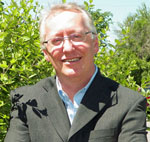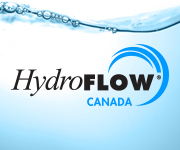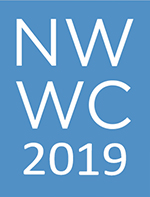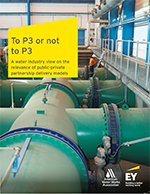 |
||||||||||||||||||
| Subscribe | Past Issues | www.cwwa.ca | Water Source Magazine | ||||||||||||||||||
|
CWWA News
In the last few years, we have overhauled financial operations, publishing and events. The last thing we haven’t played with is the website – a key tool for communicating within our industry. We are deep in the redesign stage to make this a more relevant and more valuable tool for members. We will be loading it up with many more resources and facilitating discussion amongst our members, but we will also be reworking most of it to a ‘members-only’ area. So if you enjoy reading this e-Bulletin, but are not a member, you may want to reconsider soon.
Evolving ‘flushability’ definitions for consumer products have been introduced over the last decade and a half against a backdrop of a rising number of issues in municipal wastewater systems caused by products that should not be disposed via toilets. This report seeks to shed light on the characteristics of a wide range of consumers’ products and guidance on their disposal. The focus is on products that, if inappropriately disposed in toilets, may cause in issues ranging from clogged pumps, drainline and sewer blockages, and their untreated discharge to lakes and rivers due to combined sewer overflows (CSOs) and backups. CWWA supported the development of this report, which provides an excellent resource for utilities struggling with flushable products.
Federal Initiatives
On April 2, 2019, outgoing federal Commissioner of the Environment and Sustainable Development, Julie Gelfand, tabled a report titled “Perspectives on Climate Change Action in Canada: A Collaborative Report from Auditors General”. Canada’s Changing Climate Report, released on April 1, 2019, warns that the country’s climate is warming twice as fast as the global average, and nearly three times the global average in the Far North. The report provides the first in-depth assessment of how and why Canada’s climate has changed, and what changes are projected for the future. Federal scientists warn that average temperatures across Canada have increased 1.7 degrees and by 2.3 C in the North since records became available in 1948, and that further warming is unavoidable. This is the first report completed as part of the “National Assessment - Canada in a Changing Climate: Advancing our Knowledge for Action” being spearheaded by Natural Resources Canada. Canada’s long-awaited Environmental Emergencies Regulations, 2019 were published in late March. Approximately 4,800 facilities will be subject to the Regulations. Of these facilities, approximately 3,000 will be required to prepare, implement, exercise and update environmental emergency plans. The main changes are described below. Some chemicals used in water and wastewater treatment are subject to the regulations, but percentage and quantity thresholds apply, so utilities should ensure they are meeting the regulations if necessary. On March 14, 2019, the government posted its 11th progress report on the Chemicals Management Plan, covering activities between June and December 2018. Among other things, the report provides an update on the National Pollutant Release Inventory (NPRI) - specifically providing information on an innovative new series called NPRI Sector Overview - consisting of five industry-specific fact sheets to promote NPRI data and innovation in environment. The first fact sheet, targeting the wastewater sector, is currently available. In addition, recent changes have been made to the list of reportable substances to ensure it remains current.
CWWA’s Window on Ottawa is our core event. This is YOUR window into the activities of the federal government. The Window on Ottawa provides a unique opportunity to hear about new and upcoming federal legislation and initiatives that will impact the sector. Member News
CWWA members at Tetra Tech were awarded the prestigious Franz Edelman Award recognizing their leadership in sewer control. Provincial News
Snippings & Clippings
Water Canada As climate change begins to gather speed, its impacts become more visible each year. It is not just about polar bears anymore. It isn’t even just about how difficult we are making the future lives of our children and grandchildren. Now climate change is affecting us. Funding for eight new water and wastewater projects in Saskatchewan was announced by Ralph Goodale, Minister of Public Safety and Emergency Preparedness. Water Online A multi-million dollar water treatment facility renovation in Texas has drawn interest from the federal government. And not for its impact on clean drinking water. “Speculation over whether Weslaco city commissioners were involved in an alleged bribery scheme involving the city’s $38 million overhaul of its water treatment facilities appear to have been on target, at least according to an audio recording in which a federal prosecutor said two officials accepted payments in exchange for awarding contracts to three companies,” The Monitor reported. International News
A new International Standard - ISO 20760-1 “Water reuse in urban areas: Guidelines for centralized water reuse system” - offers guidelines on how to make use of reclaimed water in order to satisfy water demands and alleviate heavy pressure on urban areas. Specifically, it addresses centralized water reuse systems and is applicable to any water reclamation system component (e.g., source water, treatment, storage, distribution, operation and maintenance and monitoring). |
||||||||||||||||||





